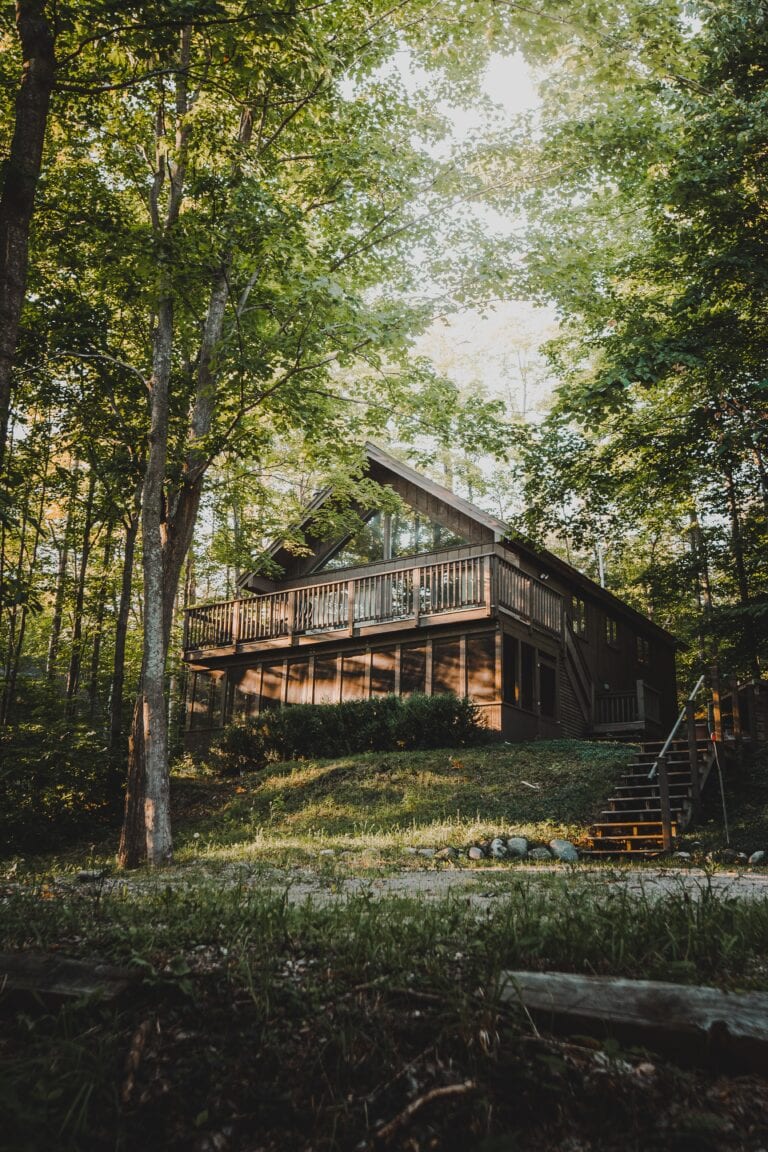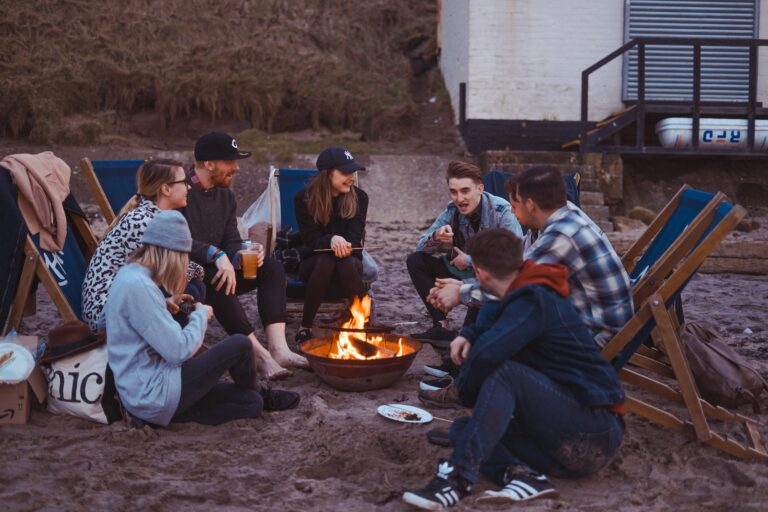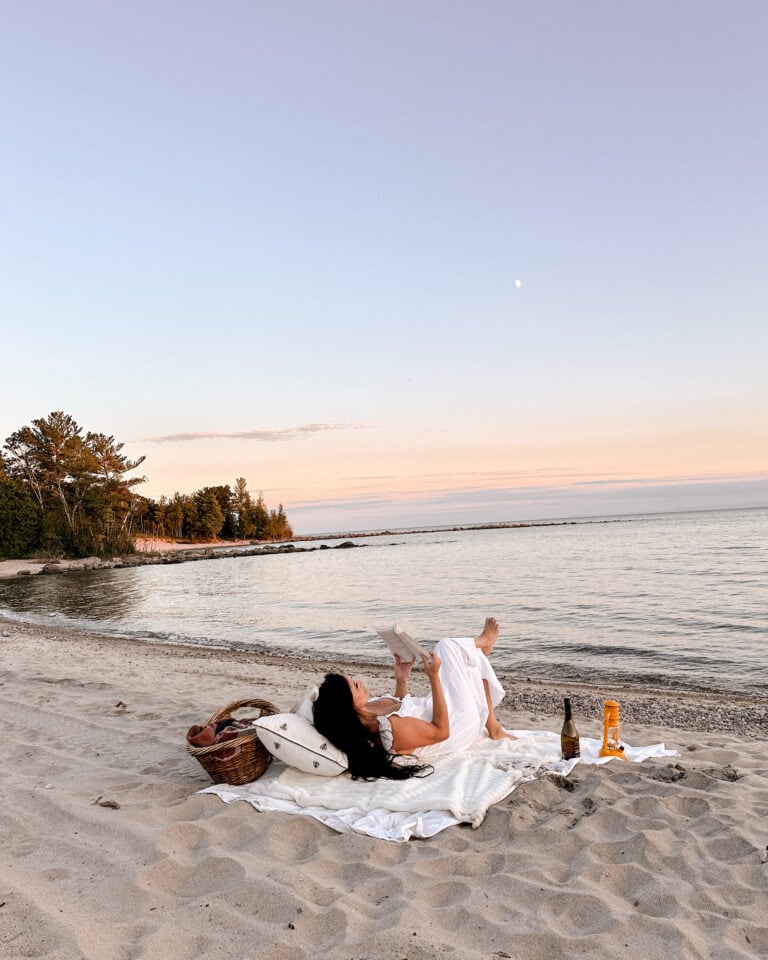The Ultimate Guide to Cottage Living: Everything You Need to Know
Post Summary: This post is the ultimate guide to cottage living, from transitioning to country life, pros and cons, and all the other tips to make the most of cottage life.

Welcome to my absolutely favorite topic, cottage living. Whether you’re tired of the noisy city, longing for a connection to nature, or simply craving a unique lifestyle, cottage living could be for you. Even though most cottages and cabins serve as vacation homes, we are seeing a shift. Many people are now buying small countryside properties to live in year-round.
So whether you’re looking for a cottage or cabin to move into, or as a weekend or summer escape to the lake, woods, or sea. In this ultimate guide, we will cover the basics you need to know about like what to look for in a cottage, the key differences from traditional homeownership, and tips to fully embrace the cottage lifestyle regardless of where you live.
Keep reading to know more about cottage living, what to look for, and our take on how to live that cottage lifestyle.
Cottage Living
My parent’s goal was to retire and live at the family cottage. For me, my career took me to the city, and it wasn’t until I had kids that I realized the appeal of cottage living. In 2018, my husband and I sold our stunning penthouse condo, for a quant 3-bedroom cottage near the lake.
Here are a few things we learned about cottage life.
What to Look for in a Cottage
Location, Location, Location
Yes, the real estate mantra applies here too. We just chatted about this in our last post, moving to the country. If you want to dive a little deeper into the things you need to consider before moving to the country, like location, take a look at that post.
But, one of the first things you need to look for in a cottage is its proximity to water bodies, accessibility to amenities, and local weather conditions. If you’re planning to use it as a weekend retreat, it should be within a comfortable driving distance from your primary residence. Or if you are craving more space, fewer people, and a bigger bang for your buck, consider a more remote location.
I actually grew up on an island in Georgian Bay, you can read about a bit of island life HERE. It’s a beautiful life, but the true prize is the affordability of a waterfront property.
Size and Layout
If it’s going to be a family vacation spot, a multiple-bedroom layout is something to consider. However, for couples or individuals, a cozy one-bedroom cottage may suffice. The idea is to find a size that complements your lifestyle without becoming burdensome to maintain.
Amenities and Utilities
Many cottages may not offer the same level of utilities as suburban homes. Some may lack gas lines or have only basic electrical setups. Check the availability and condition of utilities like water, electricity, heating, and internet.
For us, at the cabin, there is no gas, and we use a sand point for our water, which saves us our water bill.
Future-Proofing
Will the cottage be a long-term investment? If yes, you might want to ensure there’s room for modifications or expansions.
The concept of future-proofing your cottage is an important consideration that extends beyond mere aesthetics or immediate comfort. When you invest in a cottage as a long-term asset, you’re also investing in a flexible space that should be able to adapt to your needs and those of your family.
This could mean ensuring that the property has enough land for potential additions or outdoor amenities like a pool or a deck. It might also involve choosing a layout that can be easily remodeled. For instance, an open-concept design is generally easier to adapt than a more compartmentalized structure.
Electrical and plumbing systems should also be set up in a way that can accommodate upgrades or extensions. Advanced planning around these elements can save you from costly and complicated renovations down the line, and make your cottage a more versatile and valuable property in the long term.
Key Differences Between Cottage Living and Traditional Homeownership
Property Maintenance
While both require maintenance, cottages often need more specialized care. Think weather-proofing, septic tank management, and possibly boat maintenance if you’re by a lake.
Financial Aspects
Cottage properties may come with additional costs like boat dock fees, higher insurance premiums, or community fees for road and amenity maintenance.
Lifestyle
Cottage living is generally laid-back and closer to nature. Activities revolve around the environment—swimming, boating, hiking, etc.—which may not be everyone’s cup of tea.
Seasonality
Cottages are often seasonal properties, particularly in colder regions. If it’s not winterized, it may only be usable during certain months.
Connectivity
Most cottages will not have the high-speed internet and cellular connectivity that urban dwellers are accustomed to. This could be a pro or a con depending on your lifestyle.
Tips for Embracing the Cottage Lifestyle
Simplify
Cottage life is about tranquility and simplicity. Focus on essentials and meaningful activities rather than luxurious décor or high-tech gadgets.
Get Involved in Outdoor Activities
From kayaking, ATVng, and hiking in the summer to snowshoeing, and fishing in the colder months, make the most of what nature has to offer.
Be a Part of the Community
Whether it’s a seasonal or year-round community, get to know your neighbors. Participate in local events or volunteer initiatives to feel more connected.
Learn Basic Maintenance Skills
Being handy will serve you well. From fixing a leaky tap to knowing how to start a wood stove, basic DIY skills will go a long way. You can find our Cottage opening guide HERE.
Prepare for All Seasons
Whether it’s buying the right kind of clothing, stocking up on seasonal supplies, or winter-proofing your cottage, be ready to adapt to the changing seasons.
Practice Sustainable Living
You’re surrounded by nature; make an effort to protect it. Think composting, recycling, and using energy-efficient appliances. You can also dive into the world of sustainable furniture and DIY, which we recently shared about HERE.
Cottage living offers a wonderful connection to nature, a more relaxed pace, and of course unique set of joys and challenges. It’s not just a home; it’s a lifestyle choice. If love the charm of a cottage or cabin and you are willing to adapt, it could be the perfect life you never knew you needed.
Whether you’re dipping your toes into cottage living or diving in headfirst, this guide should set you on the path to making informed decisions and enjoying a fulfilling cottage lifestyle. Welcome to cottage living!



